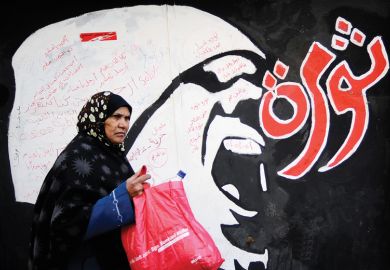Forty years ago, Noam Chomsky wrote a highly influential article about “the responsibility of intellectuals” in The New York Review of Books.
I had read the piece as a student at the University of Cambridge years later in conjunction with the ideas of Edward Said, who was also at pains to point out that intellectuals have a very particular role in society. According to Chomsky and the late Said, intellectuals have the responsibility to supervise the state and to empower marginalised voices within society.
This is a necessary component of democracy and pluralism, which underlie the foundations of freedom that intellectuals are mandated to uphold. Further research indicated to me that their ideas link up to a long tradition of critical thought in global philosophy. From Aristotle to Muslim renaissance philosophers, such as Avicenna and Averroes, speaking truth to power was seen as a necessary component of political life, not least in order to defy and contain forms of tyranny.
Despite such lofty goals and a long tradition in global thought in support of them, critical intellectuals seem to fight a losing battle.
Several non-governmental organisations, such as Scholars at Risk, document that censorship and other forms of repression are not confined only to conflict areas such as West Asia and North Africa. In Europe and North America as well, criticism is constrained and scholars are under increasing surveillance.
For instance in this year, the Hungarian prime minister Viktor Orbán sponsored a law that is meant to confine the academic independence of the Central European University, which has emerged as one of the premier hubs for intellectuals, even on a global scale. In the US, the American Association of University Professors (AAUP) has just released a report concluding that “The [US president Donald] Trump administration’s alarming hostility to science has exacerbated already troubling threats to academic freedom in the physical and natural sciences…In the area of international scientific exchange, Chinese or Chinese American scientists have been targeted and charged with espionage.”
In my conversations with scholars and scientists from the countries targeted by Trump’s “travel ban” – the so-called Muslim ban – I receive similar feedback. In particular, citizens of Iran find it almost impossible to cooperate with their colleagues in the US because of visa restrictions and forms of institutionalised discrimination.
And this is happening at a time when scores of academics are literally homeless, especially those from Syria and Iraq, as a result of the continuing wars in those countries.
In Turkey, we have been witnessing purges of academics who are wrongly accused of supporting the coup against the president, Recep Tayyip Erdoğan, in July 2016. In Egypt, the most populous country in the Arab world, the rule of Abdul Fattah al-Sisi, the president, has had equally disastrous consequences on academic life. The tragic death of the University of Cambridge PhD student Giulio Regeni, who was researching labour unions in Egypt, is a tragic case in point.
Further to the east, in Iran, critical scholarship continues to be stifled by a highly ideological political culture. Persia has produced some of the most famous tracts in poetry and philosophy in human history – from Khayyam to Rumi. And while some of these ideas were always articulated from “exile”, Iranians have fought for freedom of expression in their homeland for centuries now.
At the same time, the European Union has not sufficiently supported the academic infrastructure in countries such as Tunisia, the great success story of the Arab Spring. While strong networks of solidarity have grown out of these struggles, the current crisis can only be compared to the exodus of scholars and scientists from Germany after the takeover of the Nazis in 1933. As a consequence, an immense stock of human knowledge is being wiped out of the annals of history.
Some of these calamities are the repercussions of what I have called “psycho-nationalism” in my new book. The forms of political and psychological control that we are exposed to daily are threatening the foundations of our pluralistic societies and creating anger and misery on a global scale.
Democracy requires an educated citizenry. Freedom can be ensured only if existing rules and norms are continuously challenged. These are two very simple tenets that global history has taught us. If universities and intellectuals are harassed, culture erodes and tyranny will prevail. It is as simple, yet also as dramatic, as that.
Arshin Adib-Moghaddam is professor of global thought and comparative philosophies at Soas, University of London. His latest book, Psycho-nationalism: Global Thought, Iranian Imaginations, is published by Cambridge University Press.
Register to continue
Why register?
- Registration is free and only takes a moment
- Once registered, you can read 3 articles a month
- Sign up for our newsletter
Subscribe
Or subscribe for unlimited access to:
- Unlimited access to news, views, insights & reviews
- Digital editions
- Digital access to THE’s university and college rankings analysis
Already registered or a current subscriber?







